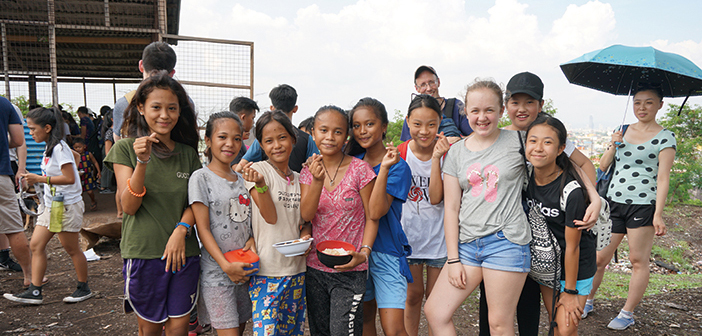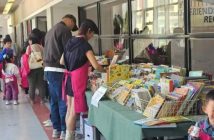There’s something about the holidays that brings out the annual giver in us.
Yet for many of Beijing’s international school students, the season of giving and goodwill is not confined to the calendar. In fact, this perennial act of helping those in need, inside the classroom and outside their city, is as essential to the curriculum as their courses are.
Xia Ze Jin, who will turn six in January, has been welcomed and surrounded by this level of warm, enthusiastic support at home since October – even if her home also happens to be her school. Here at Mammolina Children’s Home-Model Montessori Kindergarten, a bilingual Montessori kindergarten, she is a one-of-a-kind student: Xia Ze Jin is a special needs orphan, one of an estimated 50,000 living in China today.
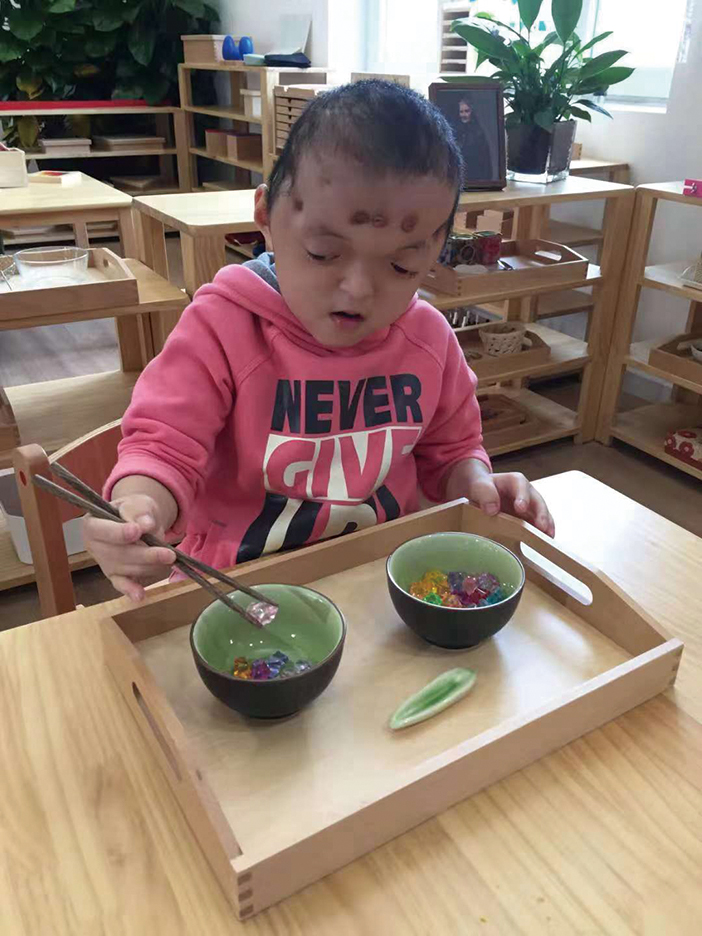
Xia Ze Jin is a special needs orphan who flew to Singapore for brain surgery.
Beginning at birth, the genetic disorder Apert syndrome slowed the growth of Xia Ze Jin’s skull, which enlarged her eyes and diminished her other facial features. It has affected her in both subtle and obvious ways, including the speed at which her brain develops. Last year, she flew to Singapore for brain surgery; the trip and procedure were arranged by Mammolina partner Blue Sky Healing Home. This private medical foster facility, next door to the school, provides orphans with access to treatment and rehabilitation, while Mammolina covers the tuition costs.
Without outside support for these critical procedures — reconstructive surgeries for hearts, bladders, and cleft lips and palates — “these kids don’t have a chance at all of getting adopted because they are so ill,” says Sasha Gigliesi, whose organization Mammolina Children’s Home has since 2005 adopted at least two children a year into the school. “After their operation, they have a lot better opportunity.”
Now, fully recovered from her surgery, Xia Ze Jin is waiting for a family to adopt her. In the meantime, though, her classmates continue to treat her “truly like family,” Gigliesi says. “The children realize we are all different. And it’s OK”
At the same time, the students have also been inspired by one of the most physically playful classmates they’ve ever known — he just happens to get around school in a wheelchair. And the children recently rallied around another boy as he gradually learned to write with the disfigured hand he almost lost in a fire. Children possess a level of compassion for each other despite their obvious differences, Gigliesi says, an instinct that often does not require teaching.
The true education comes when training staff to teach the concept of independence to students like Xia Ze Jin, specifically the skills involved in eating and using the bathroom without assistance, two milestones essential to achieve ahead of adoption. “It takes a lot of work to get them integrated,” Gigliesi says, “and to realize that they are wanted and they are loved.”
The philosophy of giving within the walls of Mammolina Children’s Home reflects how students at one international school understand and demonstrate goodwill inside the classroom. Elsewhere, at Yew Chung International School of Beijing (YCIS Beijing), students are learning firsthand how their charitable work can change the lives of children outside of class, and their city.
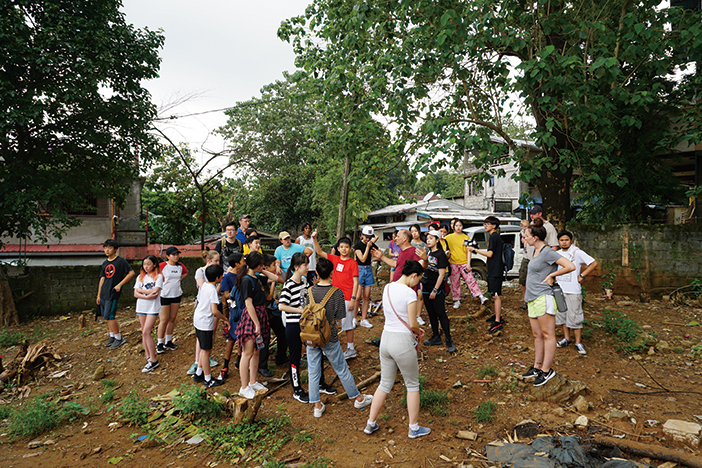
YCIS Beijing students traveled to Manila to support an organization helping local kids.
YCIS’s biggest annual project involves all 20 schools within the organization. Together they support Kids International Ministries near Manila, Philippines. Students travel five hours south of Beijing, where they spend a week building a secondary school in a foreign country and learning the finer points of facility construction and food distribution. Above all, interacting with the locals – playing basketball, talking with them, sharing a meal – underscores the mission of the trip. “At first some of them were scared; they didn’t know what we were doing,” remembers Year 8 YCIS Beijing student Angela Wang, of last year’s trip. “But then they realized we were there to help them.”
In 2016, the government passed a law regulating charities, which allowed organizations to apply for public fundraising status for the first time. This eliminated some of the red tape that inevitably comes with the founding of nonprofits. After the law went into effect, Wang Zhenyao, president of the China Global Philanthropy Institute, made a bold prediction. “A decade from now,” he told the Asia Foundation, “China could become the leading country in global philanthropy.”
Maybe so, but the numbers indicate a long path toward achieving that goal. The UK-based Charities Aid Foundation reported in 2015 that China was among the “least generous” for giving internationally, ranking the country below 144 others.
Globally speaking, donations tend to skyrocket following a tragedy, and often trigger involvement from faraway nations, especially in the age of the hashtag. In the West, the charity model has often skewed toward celebrity telethons and benefit concerts following natural disasters like hurricanes, tsunamis, and wildfires. In the immediate aftermath of destruction, money flows to rebuild — until that capital suddenly stops.
Take China over the last decade. Immediately following the 2008 earthquake in Sichuan province, which killed some 80,000 people, domestic donations to the government and charities topped RMB 70 million, an amount not surpassed in the years since.
At the same time, many of Beijing’s international schools have long embraced philanthropic projects locally and around the world. One program that has only grown since the deadly earthquake is YCIS’s Seeds of Hope, formerly known as Sichuan Earthquake Educational Development, or SEED. For 10 years now, the project has helped provide money and hands-on assistance to YCIS sister schools throughout China — and even built a new one far away in Manila.
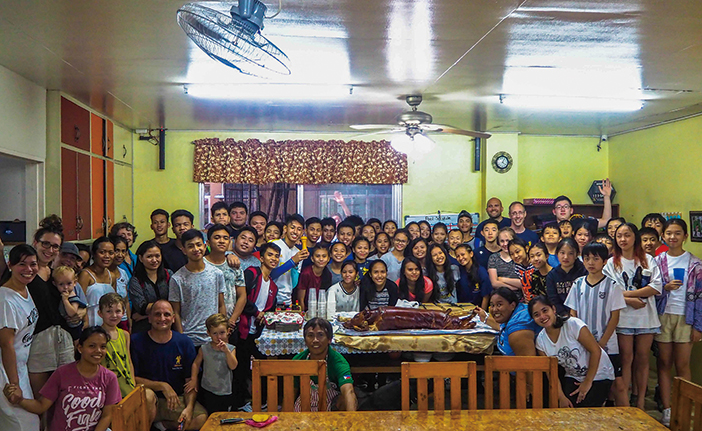
As part of that effort, YCIS schools distributed thousands of QR code-branded piggy banks as a creative way to collect donations for the construction of the school.
Angela recalls being surprised by what she saw when she first arrived in Manila with her classmates last year. The locals lacked adequate food and clothing, which wasn’t entirely unexpected. What caught her off guard were the circumstances she had never encountered back home in Beijing; she remembers some families living among piles of garbage. Still, Angela says her biggest awakening happened when she came face-to-face with expectant mothers at a local pregnancy clinic. Some of them were Angela’s age. At that time, nine percent of Filipino teenage girls were already mothers, according to the Philippines National Demographic and Health Survey. That was about twice the global rate for teenage pregnancy.
Angela looks forward to returning to Manila with her class next summer, and helping guide the younger students through the experience. “They’re new to this,” she says. “Together, we’ll make the local people live happier.”
Two years ago, Seeds of Hope expanded its charity scope to include broader local outreach, to organizations like Help a Child Smile, Educating Girls of Rural China, and A Voice for Animals. The latter rehabilitates mistreated dogs, cats, and livestock, an effort that has reinvigorated Kersi Pastakia’s spirit for activism and giving.
As president of the YCIS Beijing student council, Kersi remembers watching dogcatchers throw a wounded stray into a truck, a moment that forever shaped his perspective.
“People don’t really realize that animals need our help as well,” the Year 13 student says. “We need to make them understand that these animals are also mistreated, being slaughtered and fed to people, which is wrong.”
How does this model of philanthropy shape a student’s pursuit of doing good in the world after graduation?
In Kersi’s case, the future includes plans to study law and one day provide indigent clients with fair legal representation; in short, doing good in the name of justice.
“That’s what I’ve been taught,” he says, “to be humble for what you have, and try to help out others without being too proud. What if one day I am in desperate need of help, and everyone walks away? That’s what motivates me to help people.”
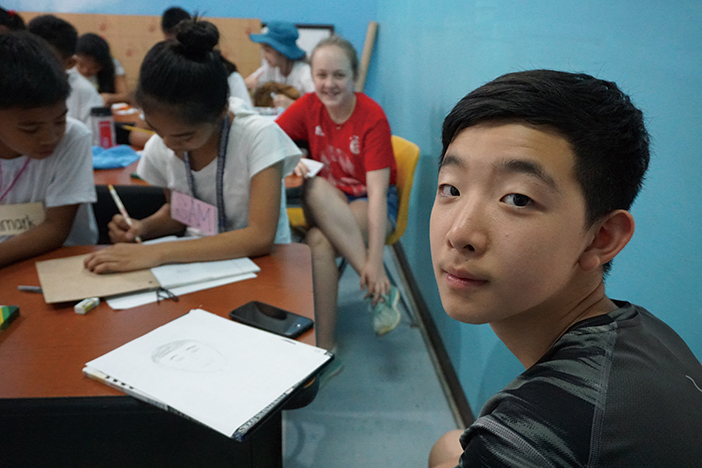
“We want the students to understand not to feel guilty about the community they were born into,” says Casey Fanning, who leads the school’s character and moral education development. “But to realize that it’s a blessing, and we can do something with that. We want to be agents for change and have influence positively.”
Whether organizing a book fair to promote literacy, defending the rights of animals, or financing a life-changing surgery for an orphan, the act of students giving back has become even more ingrained in the cultural fabric of Beijing’s international schools.
These service-focused projects illustrate what students can accomplish when they work together toward the greater good. More than ever, curriculums are enabling students to look beyond school and toward society as a whole. By aiding the neediest, students realize this level of help goes beyond satisfying an academic requirement. Instead, these experiences help shape a student’s character as they pursue a career that emphasizes giving back over getting something in return.
“Once people see that they themselves as individuals can make a difference, they want to join in and participate,” says Kersi. “I believe in that. Which is why I keep helping others.”
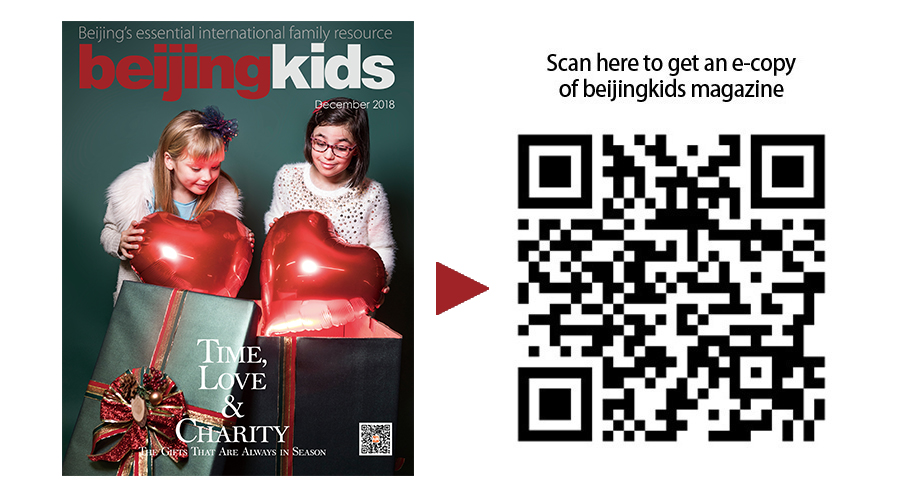
This article first appeared in the beijingkids December 2018 Charity and Goodwill issue.
Photos: Courtesy of YCIS Beijing and Mammolina Children’s Home

